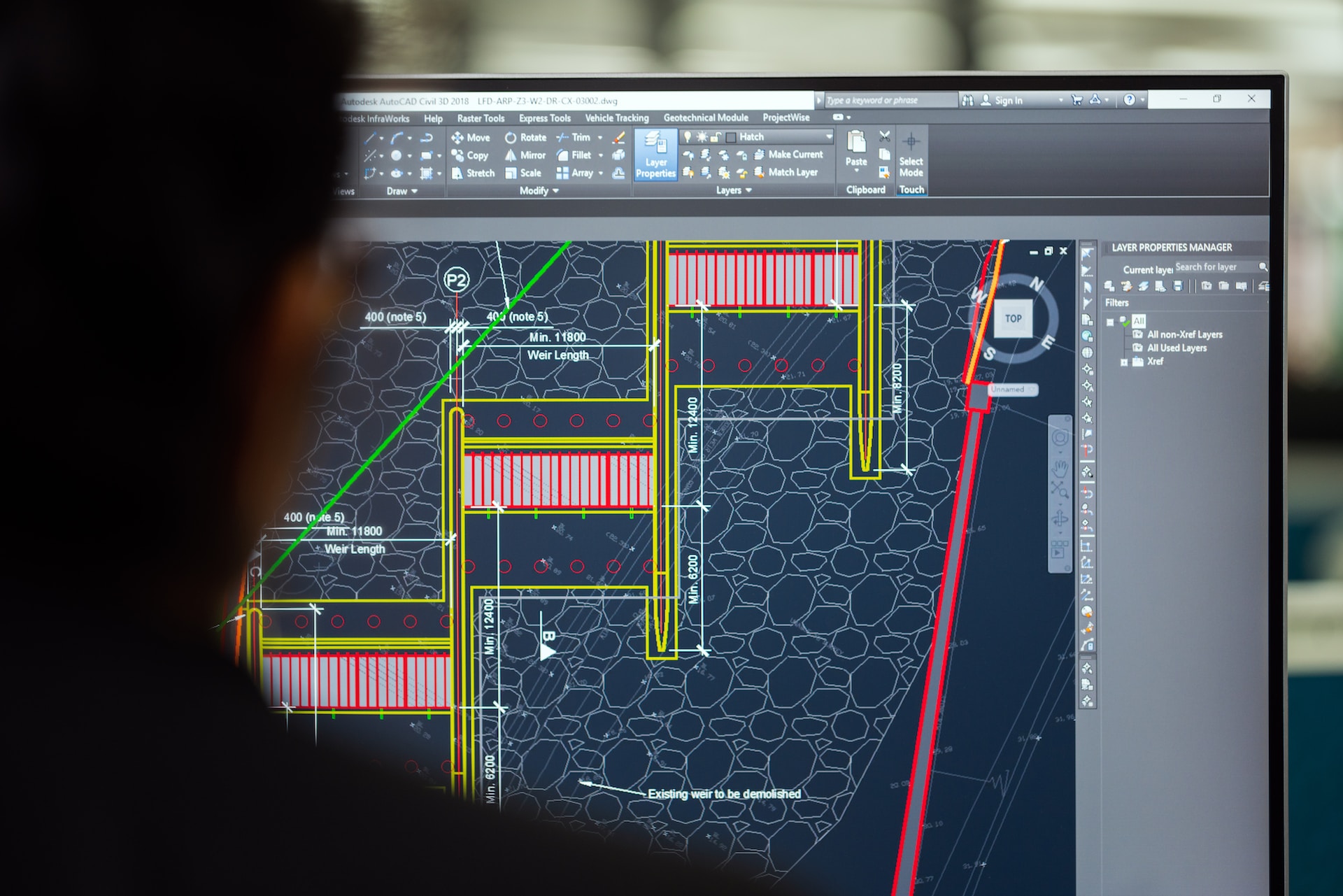Advanced engineering plays a significant role in our everyday lives. By the time we’ve made our way to work—or sat at our desks—we’ve interacted with technology and systems that have been created and powered through the work of professionals in manufacturing automation, transport engineering, or renewable energy jobs.
But what is advanced engineering, and how does it help us stay safe, comfortable, and supplied with the necessary equipment to carry out our responsibilities? From public transit to personal vehicles, consumer goods to the power grid that enables their use, and—should we need them—the medical devices and pharmaceuticals that keep us healthy, advanced engineering transforms the world and progresses lives everywhere.
This guide explores the field of advanced engineering, illustrating how it plays a crucial role in the functioning of society. We’ll also discuss the potential for advanced engineering to change society over the coming decade, highlighting the benefits that will result from the work of experts across all sectors of the industry.
How is Advanced Engineering Helping to Improve Society?
Advanced engineering pushes the boundaries of scientific knowledge, technical skills, and innovative thinking to solve complex problems and develop technologies across various sub-fields of engineering.
If you’re interested in learning more about the current developments that are driving the sector in 2023 after reading this article, you can also see our recent guide to Advanced Engineering Sector Trends for a more in-depth look at popular jobs within the industry and the answers to all of your questions about renewable energy jobs.
Professionals working in advanced engineering will be employed in a number of areas, including:
Developing advanced aircraft
Designing medical devices and prostheses
Optimising chemical processes
Materials science
Electronics
Mitigating environmental challenges such as pollution control and sustainable resource utilisation
Advanced engineering practices often integrate multiple disciplines to design and manage systems such as transportation networks, industrial processes, and large-scale infrastructure, helping to address the evolving needs of society. But what concrete examples can we find from some of the primary sub-disciplines within the industry?
Embedded Systems
Numerous examples of embedded systems exist in the field of advanced engineering, with the sector set to grow significantly from its current £112bn valuation to an anticipated £200bn by 2032.
Controlling the operation of industrial and manufacturing systems in real-time, these programmable computers—typically designed to perform a specific function within the wider production process—offer advanced engineering solutions at low power consumption and low cost. The ease of maintenance and replacement of embedded systems has made them indispensable tools throughout the engineering sector, and advances in communications technology mean they’re helping to drive the big data revolution underway in Industry 4.0.
Manufacturing Automation
The growth of sustainable manufacturing and industrial automation solutions—anticipated to reach a total market value of almost £20 million by 2025—has meant that consumers and businesses have access to affordable and high-quality products.
Automation has led to increased production efficiency, cost savings, and consistency in mass-produced products. Robotic manufacturing systems are able to perform the repetitive tasks required within the production environment with a high degree of accuracy. As a result, goods, technologies, and devices that are integral to our way of life, including clothing, personal computers, and vehicles, are more reliable and long-lived.
When it comes to direct-to-consumer (D2C) technologies and devices, 45% of customers emphasise the ability to trust that a brand’s products are durable plays a role in their decision to make a purchase. Manufacturing automation clearly isn’t just a benefit for the goods we use on a daily basis but also for stimulating our economy and ensuring businesses can thrive.
Process Engineering
Process engineering is a systems-based approach that is essential for developing sustainable practices and technologies across several fields of advanced engineering.
Whilst it may not be immediately appreciable in everyday life in the same way as a field such as transport engineering, the optimised workflows, reduced waste generation and energy consumption, and eco-friendly approaches that are championed by process engineers helps to protect the environment and guarantee a healthier future for everyone.
In fields as diverse as telecommunications, transportation, energy, the life sciences, and software development, process engineering helps to bring products and services to the market that make life more convenient and connected whilst reducing our impact on the air, water, and land.
At the same time, process engineering is helping to solve the problem of resource depletion by designing and implementing systems that aim to maximise resource efficiency and reduce the use of non-renewable resources. Similarly, process engineers help to ensure that our cities and towns are healthy and hygienic, researching and developing technologies that transport, manage, and treat biodegradable and non-biodegradable waste.
Transport Engineering
Transport engineering is perhaps one of the clearest illustrations in our list of the positive impact that advanced engineering has on our daily lives. Encompassing all aspects of travel, including personal vehicles, public transit, air travel, and commercial logistics, professionals working in this field contribute directly to the safety, efficiency, and convenience of the technologies which get us from point A to B.
Through engineering innovations, vehicles have become safer and more reliable via the development of airbags, anti-lock braking systems (ABS), and high-traction wheel designs and have also become more fuel efficient. This reduced fuel consumption results in lower costs for sales direct to consumers and businesses and contributes towards wider initiatives for environmental sustainability by reducing greenhouse gas emissions.
Alongside this, without transport engineering professionals, public transit would struggle to be as accessible as it now is. Transport engineers design stations, stops, and carriages within the rail network to be easily navigated by individuals with disabilities or visual and auditory impairments, ensuring that all members of society can benefit from a form of commuting that minimises traffic congestion and lowers carbon emissions.
Renewable Energy
Renewable energy jobs have a drastic impact on the average person’s life. In 2022, renewable power supplied 40% of the United Kingdom’s electricity needs, and the electricity being fed to the grid from renewables has quadrupled over the last decade. The UK is one of many nations that have made significant headway in transitioning to renewable sources, whilst low-carbon alternatives—including nuclear power—continue to provide the impetus for our move away from fossil fuels.
Over the long term, the growth of renewable energy jobs and the increasing cost-competition with traditional fuels with mean that energy costs will reduce for individuals and communities. Indeed, the switch could save global economies as much as £10 trillion by 2050, whilst renewables have already shown themselves as the cheapest option for new power projects connecting to the grid.
Traditional energy sources like coal and oil contribute to environmental degradation and pollution, leading to health issues such as respiratory diseases and cardiovascular damage, whilst the harm caused to ecosystems means that food security is endangered.
As a sustainable alternative, renewables provide a sustainable and low or no-emission means of powering our businesses and homes, reducing levels of illness and improving well-being, acting as an overall benefit to the economy as employees take fewer sick days.
The Shape of Engineering to Come
Over the coming decade, advanced engineering is expected to be as heavily influenced as always by emerging technologies. Machine learning and big data will revolutionise everything from manufacturing automation to transport engineering and renewable energy jobs.
So, what can we say about the shape of engineering to come? Whilst emerging technologies are promising to revolutionise many aspects of the industry—making it difficult to make large-scale predictions—we can be certain of a handful of aspects of future engineering jobs:
Always data-driven
Advanced engineering is a field that has always thrived on huge volumes of data. The increasing availability of data and advancements in AIML technologies that make parsing through large amounts of information mean that engineers in all of the sectors we’ve discussed can gain insights, identify patterns, and optimise their designs in ways they’ve previously been unable to. This will enable them to improve manufacturing efficiency, enhance the performance of machines and devices, and ensure the safety of structures with increasing ease.
More secure
The rise of interconnected systems and the Industrial Internet of Things (IIoT) means that security has become a critical concern for advanced engineering professionals. As these systems become more complex, the need for robust security measures that can identify vulnerabilities and anticipate threats increases. As a result, engineers and their employers are incorporating principles from the cybersecurity and network security fields to monitor network traffic and manage access to business-critical systems.
Safety-conscious
Employee and consumer safety—and the business reputation that is often staked on them—is a paramount concern within advanced engineering, particularly within high-risk sectors such as transport engineering. The construction, automotive, and aerospace industries are always focused on enhancing the safety and user-friendliness of their systems, often relying on historical and real-time data to identify hazards, predict failure modes, and implement training and protocols to ensure that pilots and drivers know what to do if the unexpected is to happen.
Collaborative as standard
Engineering projects almost always involve multiple teams and a dynamic and varied range of skill sets, with all stakeholders working together to achieve a shared goal. As a result of cloud-based technologies and collaborative online platforms, advanced engineering professionals will be in a better position to share data, view models, and work on simulations with their colleagues in real time, no matter how geographically dispersed teams are. As a result, we can expect plenty more innovation and an acceleration of the development process in years to come.
Less expensive
The utilisation of industrial automation solutions and sensors within the manufacturing and engineering sector will allow for the implementation of ever more effective predictive maintenance strategies. By continuously monitoring and analysing data from several sources, machines will be able to alert engineers of the early warning signs of equipment failure, helping to optimise maintenance schedules, reduce downtime, and prevent costly breakdowns. As a result, engineering projects will become less expensive, saving organisations 18% to 25% in maintenance costs alone.
These emerging technologies mean that engineering professionals will be able to continuously improve performance, safety, and return on investment over the coming decade, allowing for the ongoing analysis and optimisation of machines, equipment, vehicles, and devices.
The Verdict
Advanced engineering plays a significant role in our daily responsibilities, driving progress and enhancing lives throughout society. From examples of embedded systems throughout the engineering sector to manufacturing automation, transport engineering, and renewable energy jobs, advanced engineering integrates multiple disciplines to design, manage, and maintain systems that address the evolving and growing needs of the public and businesses.
The field encompasses industrial automation solutions that will optimise manufacturing processes, reducing overall costs and ensuring the production of high-quality goods.
Meanwhile, the creation of renewable energy jobs will mean a greater degree of sustainability, power security, and a reduction in emissions throughout all sectors. Meanwhile, the field of transport engineering will continue to drive safety, efficiency, convenience, and accessibility as professionals working within the industry implement innovations in vehicles and transportation systems.
Emerging technologies will further revolutionise engineering, allowing for data-driven insights, enhanced security measures, and increased collaboration between colleagues. These advancements will lead to cost savings, performance gains, and further innovation over the coming decade, solidifying the place of advanced engineering in shaping a better future.
Experts in Advanced Engineering Recruitment
At our core, Amoria Bond aims to champion the transformative potential of advanced engineering to progress lives everywhere. This enthusiasm drives our team of expert advanced engineering recruitment consultants, who have an impressive track record of connecting businesses with exceptional candidates in over 46 nations worldwide.
To learn more about our services, reach out and contact us for a no-nonsense discussion of your staffing requirements.






